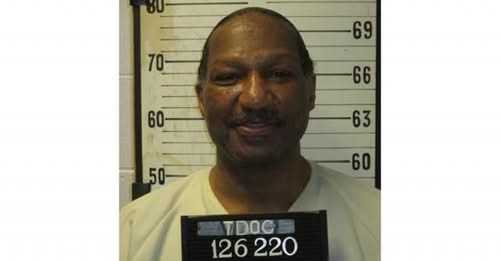NASHVILLE, Tenn. (AP) — Byron Black, a Tennessee death row inmate convicted of killing his girlfriend and her two young daughters in 1988, repeatedly told witnesses he was “hurting so bad” during his lethal injection Tuesday, after officials declined to deactivate his implanted defibrillator despite warnings it could deliver painful shocks during the execution.
Black, 69, died at 10:43 a.m., roughly 10 minutes after the injection began. Asked for any last words, he replied, “No sir.” As the drugs were administered, witnesses said Black lifted his head several times, sighed heavily, and appeared to grimace in pain. “Oh, it’s hurting so bad,” he told his spiritual adviser, who prayed and sang over him, occasionally touching his face.
The execution came after weeks of legal wrangling over whether the implantable cardioverter-defibrillator (ICD) should be switched off. In mid-July, a trial judge sided with Black’s attorneys, but Tennessee’s Supreme Court overturned the decision Thursday, ruling the lower court had no authority to order the change. State officials insisted the lethal injection would not trigger the device, or that Black would be unable to feel it if it did.
Black’s defense attorney, Kelley Henry, called the execution “shameful,” arguing that his client’s movements and complaints of pain suggest the massive dose of pentobarbital did not act as quickly as the state claimed. Henry’s team plans to review autopsy results, EKG readings, and data from the defibrillator to determine whether it discharged during the execution.
Black had been in poor health for years, using a wheelchair and suffering from dementia, brain damage, kidney failure, and congestive heart failure. His attorneys argued he was intellectually disabled — a status that would make execution unconstitutional — but courts repeatedly denied new hearings.
He was convicted of shooting Angela Clay, 29, and her daughters Latoya, 9, and Lakeisha, 6, in a jealous rage while on work-release for a prior shooting. Clay’s sister, Linette Bell, said after the execution: “His family is now going through the same thing we went through 37 years ago. I can’t say I’m sorry because we never got an apology.”
Tuesday’s execution was Tennessee’s second in three months following a five-year pause due to COVID-19 and protocol errors. Nationwide, 28 people have been executed so far in 2025 — the highest annual total since 2015.
